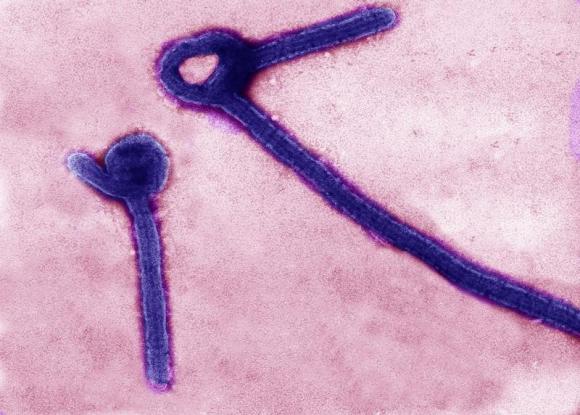You are here
Exclusive: U.S. Ebola researchers plead for access to virus samples
Primary tabs

Image: A transmission electron micrograph shows Ebola virus particles in this undated handout image released by the U.S. Army Medical Research Institute of Infectious Diseases (USAMRIID) in Fredrick, Maryland. Credit: Reuters/USAMRIID/Handout
reuters.com - November 5th 2014 - Julie Steenhuysen
Scientists across the United States say they cannot obtain samples of Ebola, complicating efforts to understand how the virus is mutating and develop new drugs, vaccines and diagnostics.
The problems reflect growing caution by regulators and transport companies about handling Ebola as well as the limited resources of West African countries which are struggling to help thousands of infected citizens.
Ten scientists from eight major research institutions contacted by Reuters reported they were unable to get Ebola samples in recent months.
(VIEW COMPLETE ARTICLE)



コメント
Delays hinder Ebola genomics
SCIENCE JOURNAL Nov. 7, 2014
By Gretchel Vogel
As the Ebola epidemic sweeps through West Africa, scientists lack key genetic data to answer a question that has provoked much worried speculation: Is the virus becoming more transmissible or more deadly, or acquiring changes that would let it evade diagnostic tests or vaccines? Thousands of blood samples from Ebola patients have been sitting in refrigerators in Africa and Europe, untouched. And, as Science went to press, the few groups that have new sequence data have not made them public. Researchers are eager for a close-up look at how the virus may be evolving. Besides answering questions about its virulence, genomic data could reveal details about the epidemic, including hotspots of transmission and how often the virus has escaped from its animal reservoir to humans. But faced with the all-consuming public health response to the epidemic, bureaucratic obstacles, and chaotic record keeping, scientists have had to wait.
Read complete article
http://www.sciencemag.org/content/346/6210/684.summary?rss=1